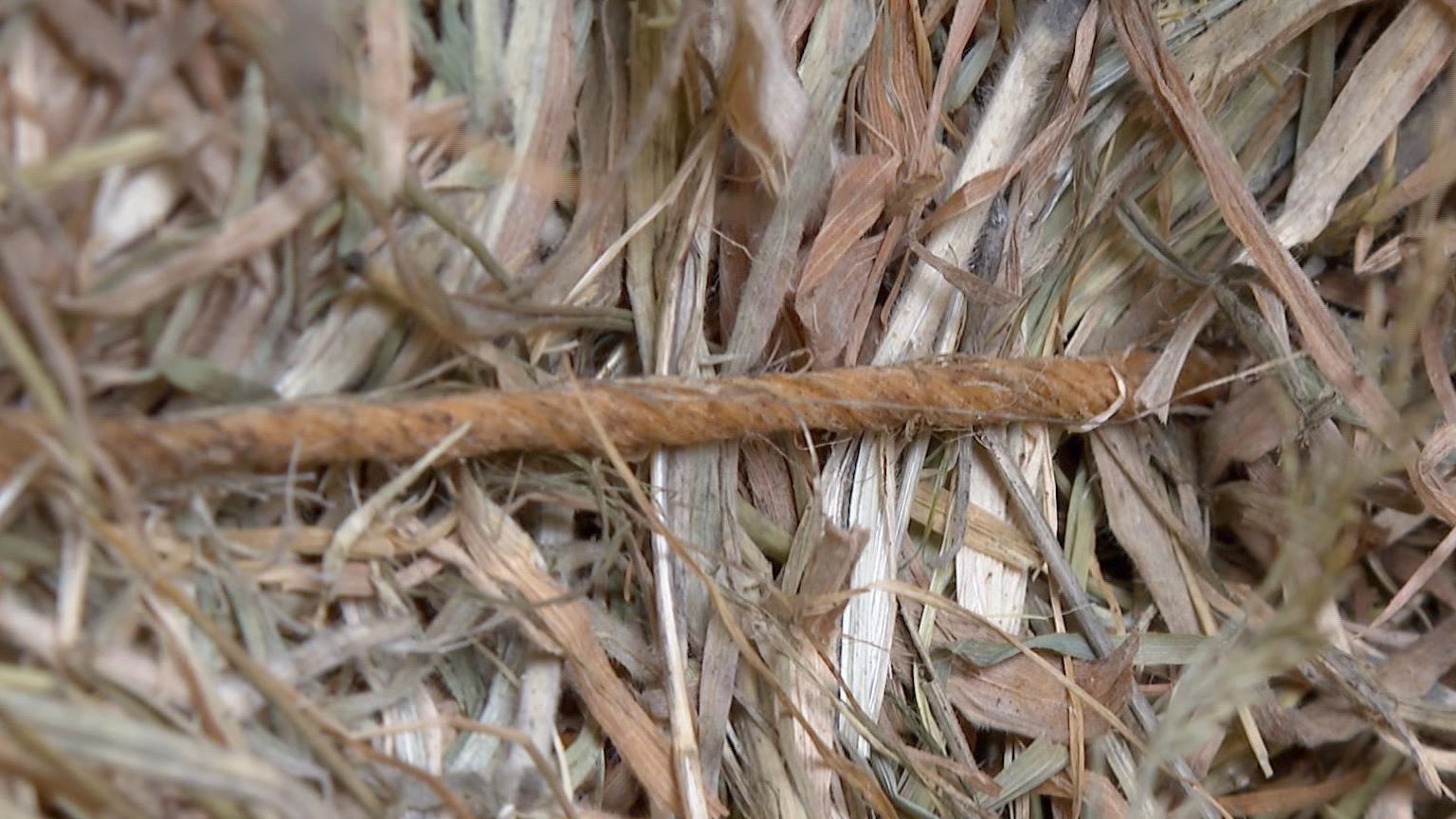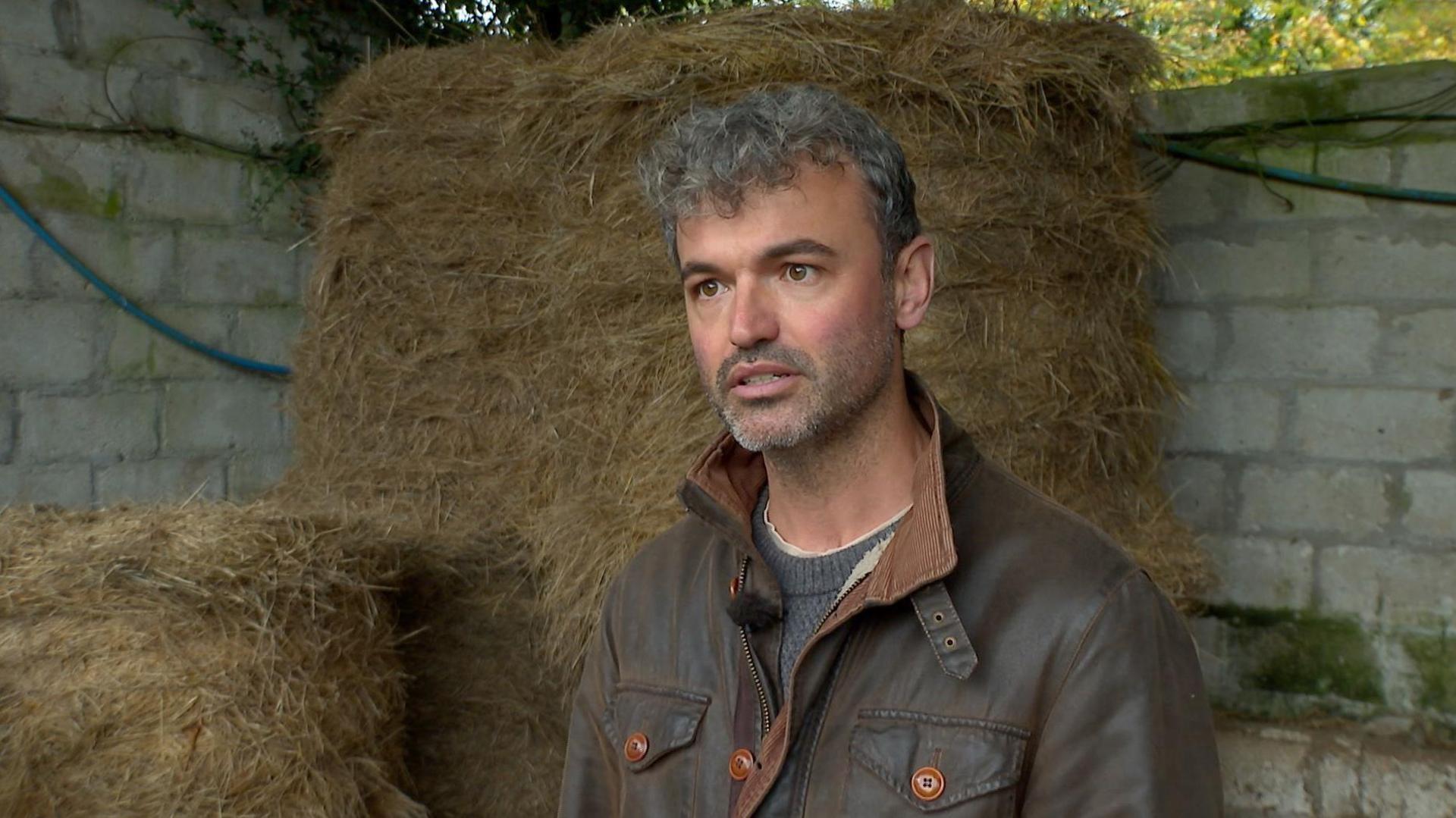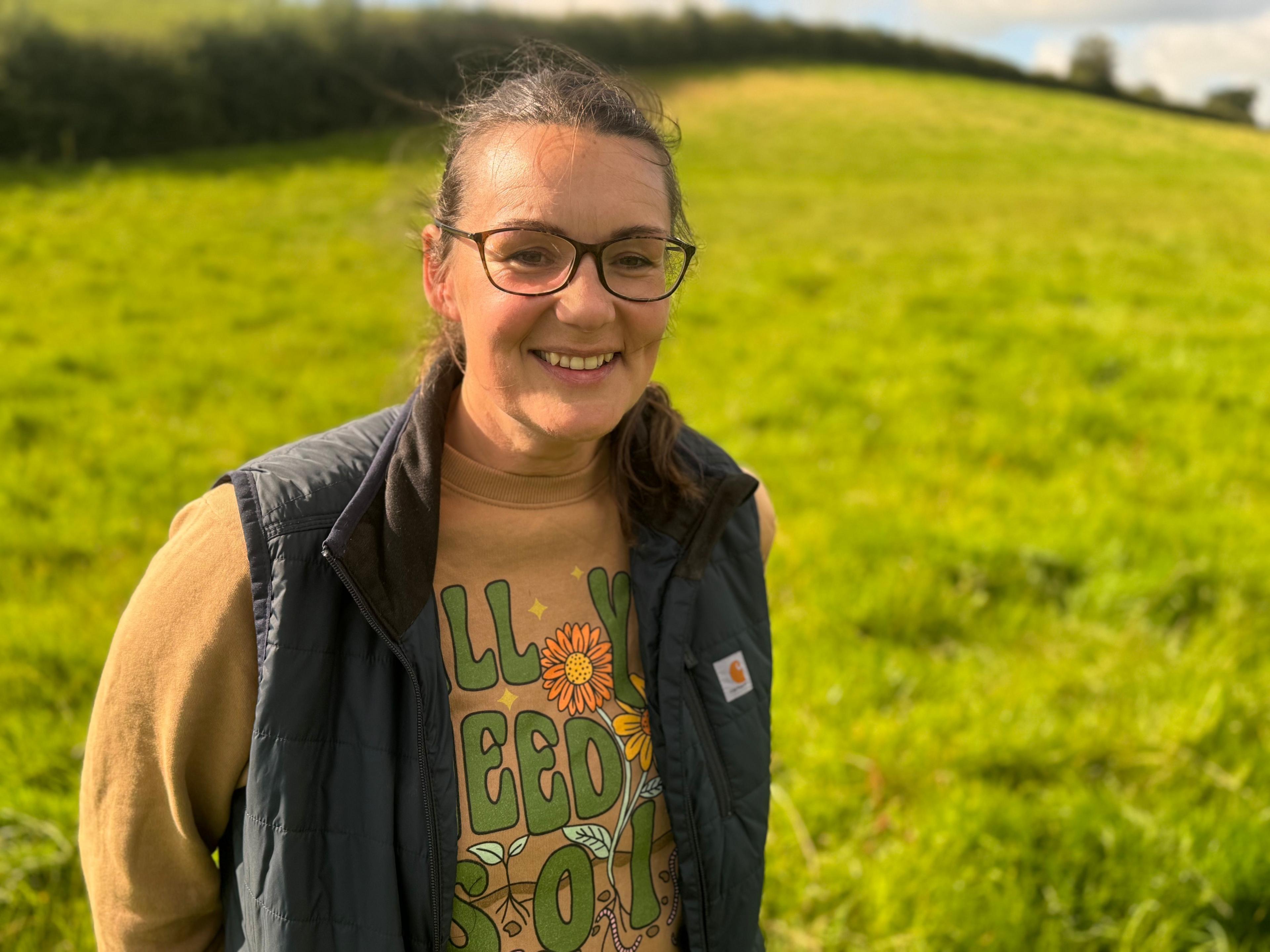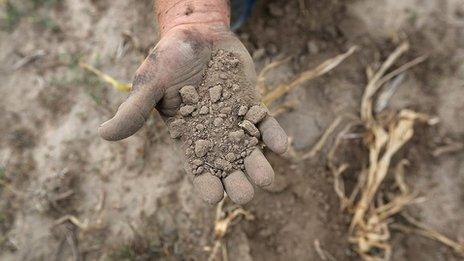Farmers test eco-friendly alternatives to wrapping hay

Farmers in Cornwall are wrapping hay in twine made from sisal
- Published
A group of farmers is wrapping up hay bales with an old-fashioned twine to test it as an alternative to plastic string and plastic netting.
The twine, made from the sisal plant, was commonly used by farmers until it was replaced by plastic alternatives in the 1970s.
Stuart Oates, from Rosuick Organic Farm in Cornwall, said swapping back to the plant-based fibre may seem a small step, but it could be a catalyst for greater change in the industry.
The project was funded with a £10,000 grant from the not-for-profit network Innovative Farmers.

Stuart Oates is the man behind the scheme
Thousands of tonnes of plastic waste are created every year wrapping bales of hay for livestock bedding and feed, which can take decades to degrade and can be harmful to livestock and wildlife.
Mr Oates said he sourced sisal twine from where it was grown in Brazil and Africa, saying it was still an environmentally-sound investment despite transport costs.
He said: “If we can get all famers and the public talking about the problems we have on farms, then we can get manufacturers involved.
"We can get people making recyclable net, biodegradable net, or a sisal type of net, so we can take the ideas from this project and develop them using modern techniques to really advance farming into the future."
Acknowledging that the transport side was still an issue, he said it was still better than allowing single-use plastics to get into food chains and farming systems, and that places which grew sisal plants sowed almost nothing else.
He said: "If we can support developing economies, we can use a product that is really sustainable."
Follow BBC Cornwall on X (formerly Twitter), external, Facebook, external and Instagram, external. Send your story ideas to spotlight@bbc.co.uk, external.
Related topics
- Published6 September 2024

- Published27 April 2022
